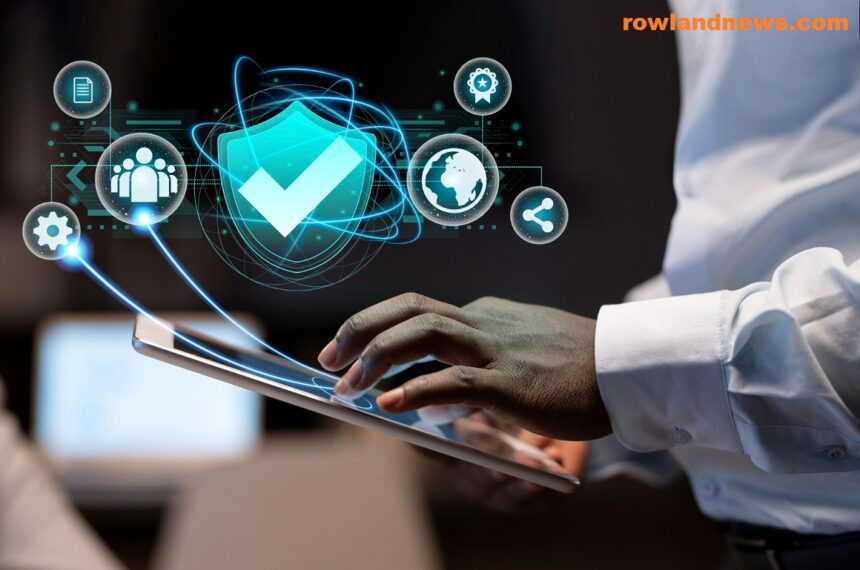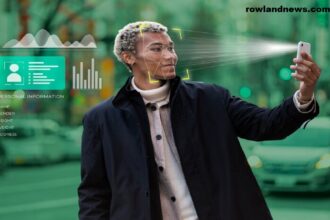Introduction
Are We Trading Convenience for Privacy?
You walk into a store and without opening your mouth, your digital butler already knows your favourite brand, the latest item you bought online and your preferred payment method. Pretty convenient.
Hold on a minute, how did he know all that? Welcome to 2025, where there is more Artificial Intelligence (AI) around than ever before and deeply embedded in our lives, from the personalized content on the Netflix app to bank fraud detection of just about any kind. But with that power comes one question:
Is our data safe?
Those are the topics we will be covering here now that you’re done with it. We examine how AI is reshaping the world we live in today, how digital transformation has altered the rules, and what it means for you, your data, and, perhaps even more importantly, the future of trust online.
Understanding AI’s Part in Modern-Day Data Platforms
No longer just a buzzword, AI is basic to technology. It’s 2025, and businesses, governments and individuals in countries across the world are using AI to analyze data strategically, make decisions on great masses of data and predict behavior (sometimes even wildly x-factor) precisely.
However, AI requires extensive data to function effectively.
That data frequently consists of:
- Your location history
- Purchasing behaviour
- Biometric details (e.g., face scans or voice prints)
- Financial and health records
It simply is personal information that AI feeds on. So privacy and security are top concerns.
How AI is Strengthening Data Security
1. Threat detection has leveled up
One of the most significant gifts of AI is that it can detect real-time threats. Machine learning algorithms are now faster than any human group of vigilantes in identifying some anomaly or suspicious behavior, thanks to the powers they have.
AI threat detection and AI in cybersecurity are central to modern safety protocols.
Banks like JPMorgan Chase employ AI-driven data protection tools that monitor billions of transactions each day and intercept fraud before it ever arrives at the customer, as CNBC reports. The creation of these systems has cut financial fraud rates by more than 20% alone.
2. Predictive Security: Stop Breaches Before They Happen
AI not only responds, but it also looks ahead. If you have enough data for an AI network, it can predict probable breaches or internal vulnerabilities before they come into play.
Healthcare systems now utilize AI in healthcare security to identify unusual access patterns of patient records, thereby protecting sensitive data from abuse.
3. Automating Routine Cybersecurity Tasks
AI helps overworked IT staff by automating their least skilled tasks. With the arrival of routine patch management, password resetting, and intrusion detection being handled entirely by machines, though not yet completely, it makes having these mundane tasks performed automatically possible.
Humans are freed to take on bigger problems.
Artificial intelligence and cybersecurity automation lead to fewer human errors and more efficient systems.
Surveillance and Over-Collection of Data
With the massive datasets that AI requires, companies frequently end up collecting more data than they know what to do with. In 2025, AI-powered cameras, voice assistants, and apps are constantly listening, recording, and learning.
Welcome to the age of AI, surveillance and data overcollection.
You want proof? Ever talked to someone about a product and then saw ads for that exact item on your screen later that evening? This is not a chance. AI is propelling the rise of “surveillance capitalism”.
A report issued in 2024 by the Electronic Frontier Foundation (EFF) explores the concerning concept of “data creep.” This occurs when users inadvertently provide additional personal data due to AI-driven services.
Deepfakes and Identity Theft
AI is also the father of deepfake technology, hyper-realistic videos or voice clips that can sometimes be used in place of real people.
This leads to alarming risks related to AI and identity theft and deepfake technology.
For instance, in early 2025 alone, a deepfake of a top CEO was used to deceive the head office into sending $ 25 million to a swindler. In March, the BBC exposed this amazing breach.
Biased Algorithms and Unfair Decisions
AI will always be as fair as the data it is trained on. If the historical data carries bias, so will AI, nd possibly even take that bias some steps further.
This is one of the growing AI privacy concerns in 2025, touching on bias in AI algorithms.
Consider hiring algorithms that reject applicants based on race or gender, or predictive policing tools that disproportionately target one particular community after another.
The Response of Both Governments and Companies
A New Privacy Regulation Is in the Making
As worries increased, governments began to intervene.
- The EU AI Act, adopted in 2024, classifies AI systems according to risk and prohibits those that pose a threat to fundamental rights.
- The upcoming U.S. AI Accountability Act (expected to be introduced late 2025) will require companies to audit their AI systems to ensure they are fair and secure.
These are significant developments in AI governance, AI accountability laws, and privacy regulations in 2025.
Big Tech’s Changing Style
Companies like Apple, Google, and Microsoft are investing in privacy-first AI models.
- Apple’s on-device AI processing avoids sending sensitive information to the cloud.
- Microsoft’s Responsible AI Standard teaches developers to steer clear of bias and employ ethical AI practices.
These are key to building digital trust and AI acceptance.
How Can I Keep My Data Safe?
AI isn’t going away, it’s only getting better. But you can take possession of your personal information with a few changes:
- Use privacy tools like encrypted messengers (Signal, ProtonMail)
- Opt out of data tracking, review app permissions regularly
- Check AI-generated content for watermarks or signs of manipulation
- Support ethical tech companies focused on data protection and AI
The Middle Path: With One Eye on the Future and the Other on Privacy
In 2025, AI serves as both guard and intruder. It better shields your data than ever before, but it also requires more of that, without always using it carefully.
As AI continues to shape our digital future, transparency, accountability, and empowering users must lie at the root of innovation.
The dual nature of AI and data privacy requires that ethical AI practices and responsible AI standards be foundational to all new development.
Final Thought: Your Privacy Is in Your Hands
We all leave digital fingerprints behind, from tech experts and entrepreneurs to ordinary users. Stay informed. Ask questions and choose wisely.
Privacy is like football—it’s a team thing, and the whole way through, everybody plays a role.
Sources:














